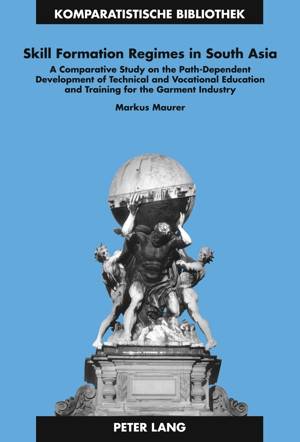
- Afhalen na 1 uur in een winkel met voorraad
- Gratis thuislevering in België vanaf € 30
- Ruim aanbod met 7 miljoen producten
- Afhalen na 1 uur in een winkel met voorraad
- Gratis thuislevering in België vanaf € 30
- Ruim aanbod met 7 miljoen producten
Zoeken
Skill Formation Regimes in South Asia
A Comparative Study on the Path-Dependent Development of Technical and Vocational Education and Training for the Garment Industry
Markus Maurer
€ 106,95
+ 213 punten
Omschrijving
In the face of accelerated economic globalisation, many of the industries in economically less developed countries have become more technology-intensive. Skill formation processes, both inside and outside firms, are therefore changing. This study scrutinises such transformations by comparing - from the perspective of historical institutionalism - the skill formation regimes of the garment industries in Sri Lanka and Bangladesh. It sheds light on the differences between the trajectories of the in-firm skill formation regimes of the two countries, and reveals the important part that varying paths of educational development in both countries have played in shaping these trajectories. At the same time, the study shows how, in both countries, state-led skill formation regimes have been transformed not only by market forces and the growing importance of corporate business interests, but also by the social demand for educational credentials.
Specificaties
Betrokkenen
- Auteur(s):
- Uitgeverij:
Inhoud
- Aantal bladzijden:
- 449
- Taal:
- Engels
- Reeks:
- Reeksnummer:
- nr. 21
Eigenschappen
- Productcode (EAN):
- 9783631600207
- Verschijningsdatum:
- 13/01/2011
- Uitvoering:
- Hardcover
- Formaat:
- Genaaid
- Afmetingen:
- 148 mm x 210 mm
- Gewicht:
- 709 g

Alleen bij Standaard Boekhandel
+ 213 punten op je klantenkaart van Standaard Boekhandel
Beoordelingen
We publiceren alleen reviews die voldoen aan de voorwaarden voor reviews. Bekijk onze voorwaarden voor reviews.











